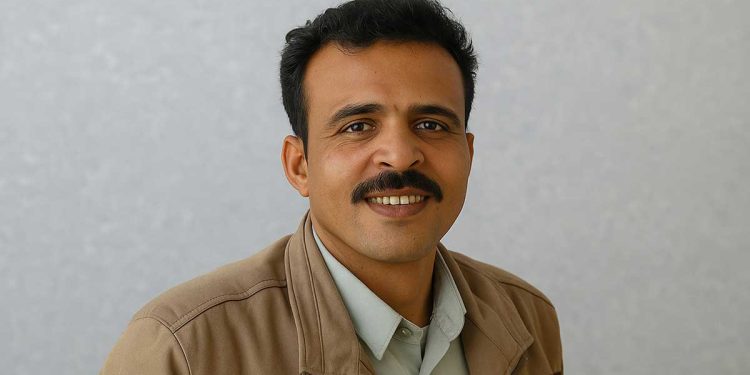Egyptian political prisoner Saleh Ayyed Rabie, aged 40, has died inside the high-security Minya Prison after prolonged illness and continuous deprivation of medical care — a new case that highlights the persistent pattern of deliberate medical negligence in Egyptian prisons, often used as a form of political punishment against detainees.
According to information from inside the prison, Rabie had been suffering for a year from a tumour in his neck that gradually spread throughout his body. Despite his deteriorating condition, he was denied access to proper medical care or referral to a specialised hospital. Prison authorities ignored repeated appeals from his family to transfer him for urgent treatment, leading to the total deterioration of his health until he lost the ability to move or speak and eventually died in his cell.
This case represents a serious violation of the right to life and the right to health, enshrined in the Egyptian Constitution and international treaties to which Egypt is a party, including the International Covenant on Civil and Political Rights and the Mandela Rules, which oblige states to provide medical care to prisoners equivalent to that available to the general population.
The denial of medical treatment and refusal to transfer Rabie to a hospital constitute cruel and inhuman treatment, a breach of international law that may amount to torture and could rise to the level of a crime against humanity if carried out systematically.
Rabie’s death is not an isolated incident but part of an escalating pattern of fatalities caused by medical neglect in Egyptian prisons, where numerous testimonies report repeated denial of medical care and long delays in transferring sick prisoners to hospitals, often until their conditions become irreversible.
This entrenched policy of neglect goes beyond administrative failure, revealing a systematic approach that uses poor detention conditions as a form of reprisal against political detainees. The Egyptian Ministry of Interior and the Prisons Authority bear direct legal responsibility for such deaths, while the Public Prosecution — which holds the authority to inspect detention facilities — is obliged to conduct immediate investigations into every death in custody.
Under both Egyptian and international law, the state has a positive obligation to protect the life and physical integrity of every person in custody, an obligation that remains in force even after judicial convictions.
The persistent absence of accountability in such cases perpetuates a system of impunity, paving the way for further deaths behind bars. It places the Egyptian authorities under international legal responsibility, requiring urgent investigation, redress, and reform to guarantee every detainee’s right to medical care and dignity — before prisons become, once again, silent graves for the regime’s political opponents.


























